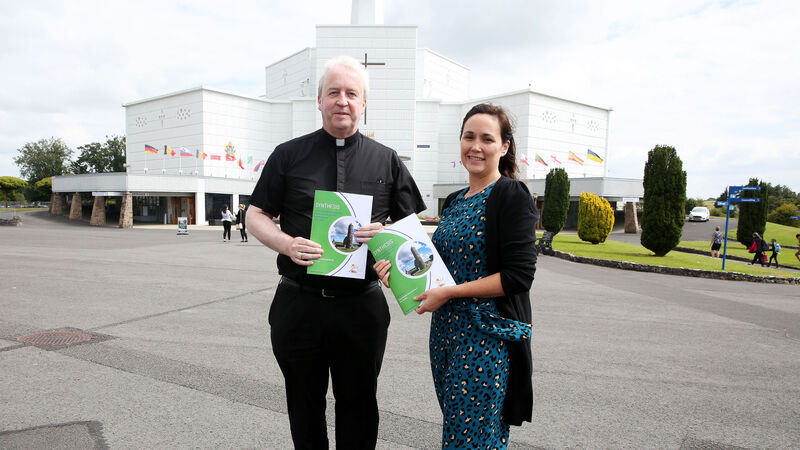Landmark church report highlights desire for female priests, optional celibacy, and inclusion for all

Bishop Michael Router, and Dr Nicola Brady, chairperson of the Irish Synodal Pathway steering committee, launch the national synthesis of the Catholic Church in Ireland, marking a significant milestone for progression within the Church. Picture: John McElroy
A report from the Catholic Church in Ireland has said many want female priests, optional celibacy, and the full inclusion of the LGBTQI+ community.
The document summarises a nationwide consultation at all levels of the church, as part of a global synod on the institution’s future













